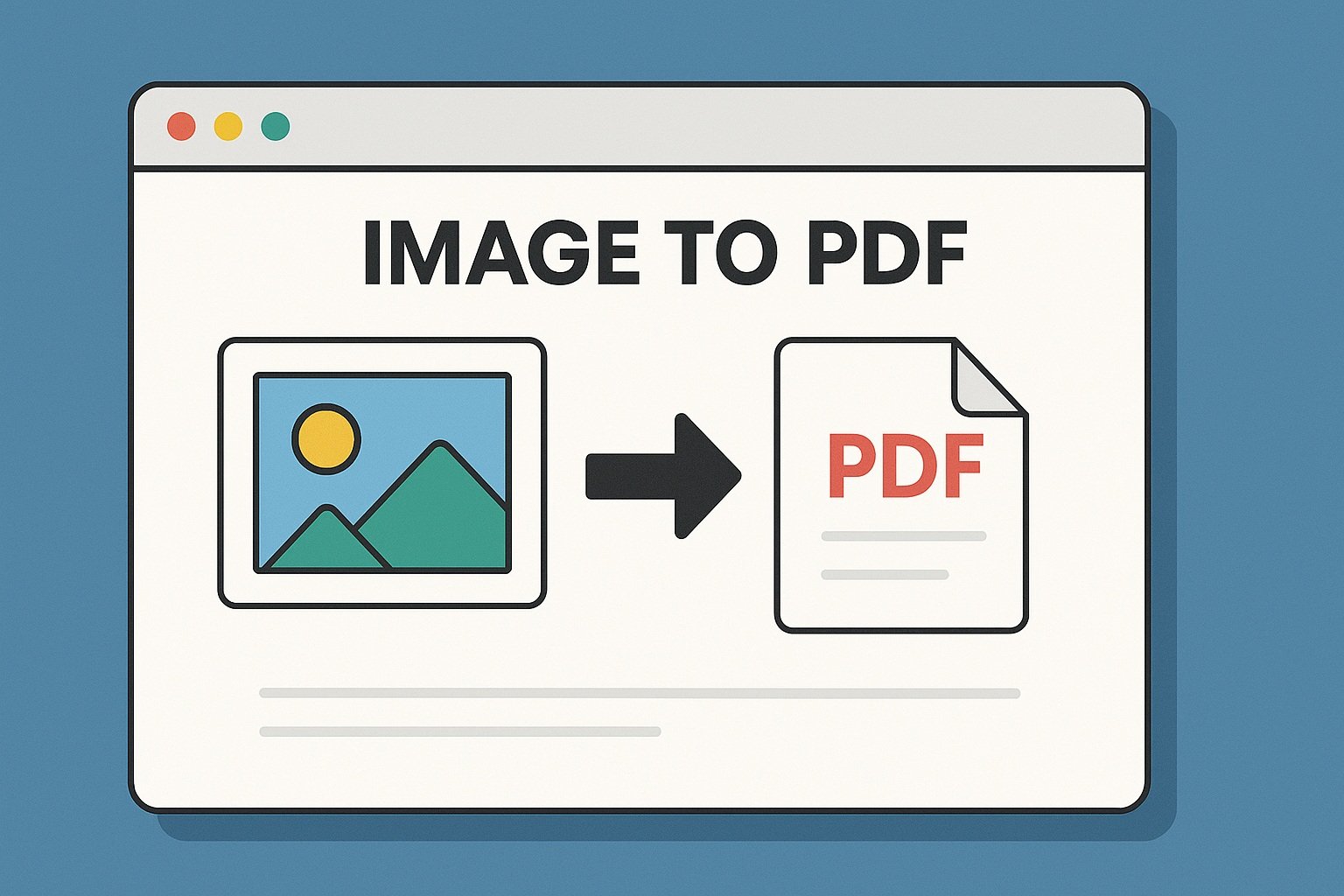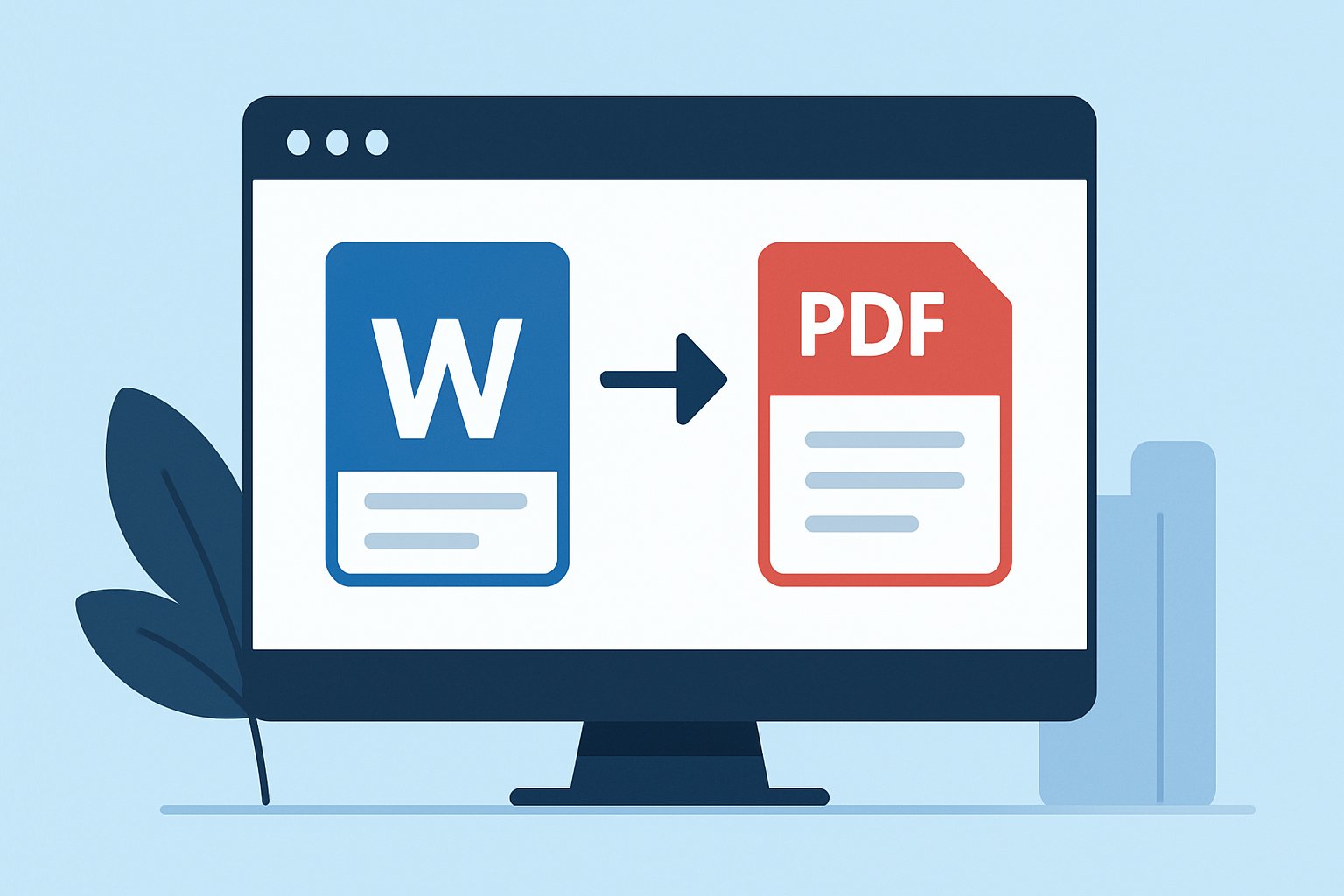Introduction
Images come in many formats — JPEGs, PNGs, HEICs from smartphones, and even scanned paper documents saved as TIFF. While these formats are ideal for capturing raw visual data, they fall short when it comes to structure, security, and long-term usability. That’s where PDFs come in.
Converting images to PDF turns unstructured visual files into organized, shareable, and professional-grade documents. Whether you're a freelance designer, student, office worker, or small business owner, the benefits go far beyond aesthetics.
"PDFs give structure and permanence to otherwise fleeting image files — transforming snapshots into reliable documents."
The Problem with Raw Image Formats
While image files are ubiquitous, they come with limitations:
- Difficult to organize: Images stored individually can become chaotic, especially across multiple devices or folders.
- No multi-page support: Sending five JPEGs isn't the same as sending a single, scrollable PDF.
- Lack of metadata and security: Raw images don’t support embedded permissions or encryption.
- Inconsistent formatting: Image dimensions and orientation may render differently across devices or apps.
Even something as simple as emailing a scanned contract in JPEG format can lead to formatting confusion or printing issues for the recipient.
Benefits of Converting Images to PDF
When you convert your images into PDF, you unlock a new set of advantages — both practical and professional.
Unified Presentation
PDFs allow you to combine multiple images into one document, making it easier to present portfolios, receipts, or photo documentation in a sequential, scrollable format. This is particularly useful for:
- Designers showcasing visual work
- Contractors submitting photographic reports
- Students submitting handwritten homework
The result is a polished document that can be viewed or printed exactly as intended, with no formatting surprises.
Security and Control
Unlike standard image formats, PDFs allow you to encrypt your files, restrict editing, or add password protection.
This is vital when you're sharing visual files that contain sensitive information, such as:
- ID documents
- Medical scans
- Legal or financial paperwork
With password protection, converting images to PDF gives you control over who views, edits, or prints your files — something a JPEG simply can’t do."
Better Compatibility Across Devices
Mobile phones and computers handle image files differently — and not always gracefully. A PNG file sent from an iPhone might not display correctly on an older Windows laptop. PDFs, by contrast, render consistently across platforms and browsers.
- Viewable on any device, without needing specific image software
- Printable without distortion or scaling issues
- Optimized for both screen reading and physical output
Easier Storage and Archiving
One overlooked benefit of converting images to PDF is organization. PDF files can store metadata, include bookmarks, and be embedded into document management systems.
This makes them ideal for:
- Archiving signed documents
- Backing up photo receipts for tax purposes
- Creating long-term records of scanned materials
PDFs also reduce clutter: instead of 20 individual JPEGs, you have one compact, organized file.
Real-World Use Cases
Converting images to PDF isn't just for graphic designers or corporate professionals — it's useful in everyday life too.
Freelancers and Consultants
From sketch concepts to signed client agreements, PDFs bring clarity to communication and ensure your documents reflect your professionalism.
Students and Educators
Turn handwritten notes, math problems, or drawn diagrams into single PDF files for submission, feedback, or long-term study.
Remote Workers
Scan whiteboard images, photos of contracts, or physical forms and convert them into PDFs that are easy to sign, annotate, and send.
Everyday Users
Need to combine family photos into a printable album? Or store receipts for warranty claims? PDFs provide a cleaner, more accessible format.
Tools That Make It Easy
Modern tools like Forever PDF Image to PDF tool allow anyone to convert images to PDF directly from the browser:
- No software installation
- Support for multiple image formats (JPG, PNG, HEIC, WebP)
- Drag-and-drop simplicity
- Mobile and desktop friendly
- No watermarks, no fees
💡 Tip: Scan paper documents using your phone camera, then convert to PDF for instant digitization.
Final Thoughts
Converting images to PDF is no longer a niche workflow — it's a mainstream necessity for those who value clarity, control, and convenience. PDFs are not only more stable and secure, but they’re also better suited to the way we share, store, and interact with information today.
If you're still sending raw image files, you're missing out on the advantages of PDF: unified structure, encryption, professionalism, and long-term preservation. With the right tools, turning your images into high-quality documents is just a click away.
Try it now at ForeverPDF.com/image-to-pdf and discover a better way to manage your visual files.




